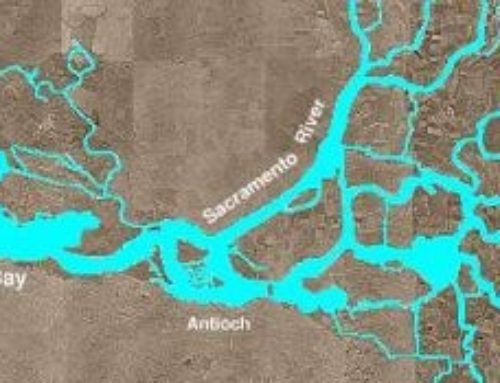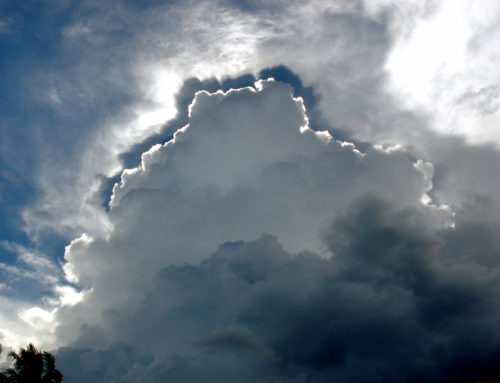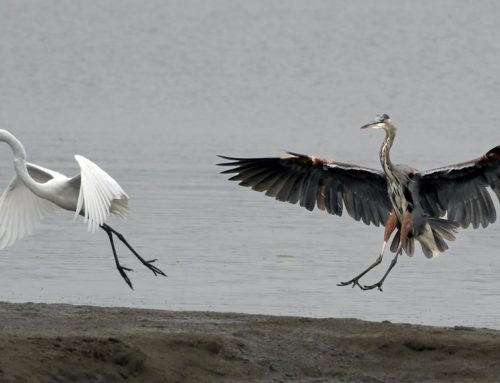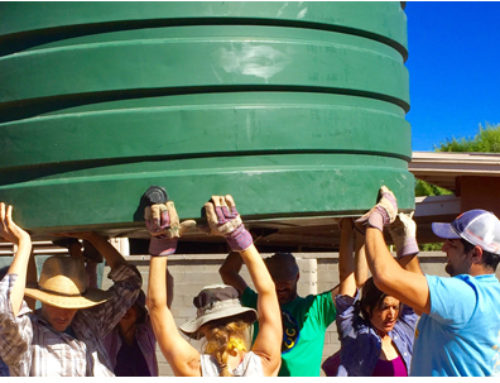-
The pool of California’s Water Policy and Legislation packages can be akin to the oil-soaked waters of the Gulf Coast – nigh impossible to understand and laden with danger. I’ll be reading Rep. Devin Nunes, R-Visalia new California water bill to see how efficiency and water reuse fit into his plan as first steps before more dams and a peripheral canal are sought as solutions.
California water bill likely to be hotly debated
WASHINGTON — A San Joaquin Valley Republican is writing an ambitious California water bill that may have a better chance of sparking debate than of becoming law.
Rep. Devin Nunes, R-Visalia, acknowledges the high hurdles facing his bill, whose provisions include authorizing a controversial Peripheral Canal and repealing a San Joaquin River restoration deal. Strategically, though, Nunes insists his bill has promise.
“I know the Democratic majority will never do this,” Nunes said, “but we have every intention of moving this next year if we get control (of Congress.)”
Republicans need to win back 39 seats if they are to regain control of the 435-member House of Representatives. Politicians of both parties agree Democrats are likely to lose some seats in November, though not necessarily enough to endanger their House rule.
The California water bill that Nunes plans to introduce with a few fellow Republicans as early as next week is currently being given its final polish, the latest in a series of bills aimed more at 2011 than 2010.
The bill of roughly 40 pages would authorize and put on a fast track several new water projects, including a Temperance Flat dam on the San Joaquin River and a canal skirting the periphery of the Sacramento-San Joaquin Delta. It would repeal legislation designed to restore water and salmon to the San Joaquin River below Friant Dam, and change a 1992 law that devoted more California water to environmental protection.
The bill would also strip federal judges in the San Joaquin Valley of their power to hear legal challenges to the bill’s provisions, handing the potential disputes instead to an appellate court in Washington, D.C.
“It’s a big bill,” Nunes said.
Even Republicans could balk at some of it.
In 2005, for instance, Nunes introduced a bill that likewise would have rolled back part of the environmentalist-backed 1992 Central Valley Project Improvement Act. At the time Nunes introduced the 2005 bill, Republicans controlled the House. Nonetheless, Nunes only found one co-sponsor for his 2005 bill, and it went nowhere.
Conservative California lawmakers in the mid-1990s likewise tried rewriting the 1992 water law, during a time that Republicans controlled Congress. They failed.
Provisions repealing the 2009 law authorizing projects to restore the San Joaquin River will likewise face tough rowing. Overturning the 2009 law and replacing it with something more modest would threaten a legal settlement that farmers and environmentalists reached after more than 18 years of courtroom wrangling.
“I don’t know if Congress has an appetite to repeal that legislation,” said Ron Jacobsma, executive director of the Friant Water Users Authority. “We put together the best compromise we could, and trying to take away the settlement would certainly be problematic.”
Nunes said once the comprehensive bill is introduced, he could try to peel off small sections and attach them to other legislation that’s moving through Congress.
Rep. Jim Costa, D-Fresno, said Thursday that Nunes hadn’t yet shared with him the legislative language.
The veteran Democratic lawmaker, who began working on Valley water issues as a state legislator in 1979, questioned both the substance of the bill and the process by which it’s come together..
“This is not the way to start off,” Costa said, calling a bill introduced without bipartisan support “nothing more than an election-year document.”
Read more: http://www.mcclatchydc.com/2010/07/15/97614/california-water-bill-likely-to.html#ixzz0trGoYnFY






